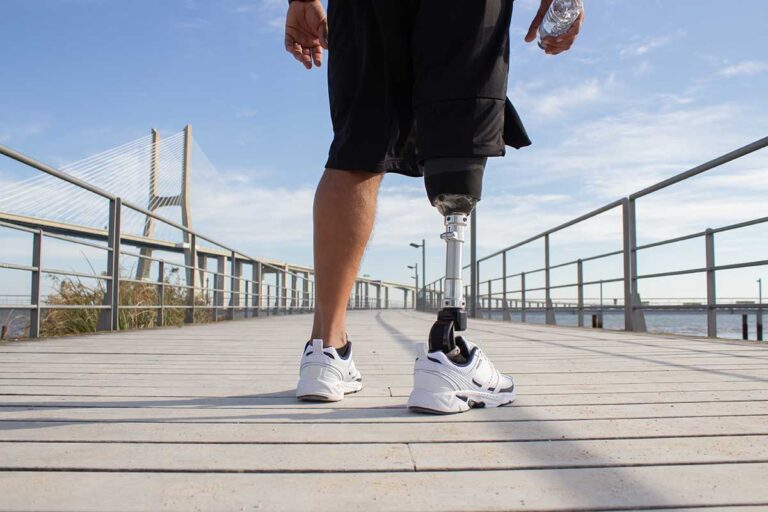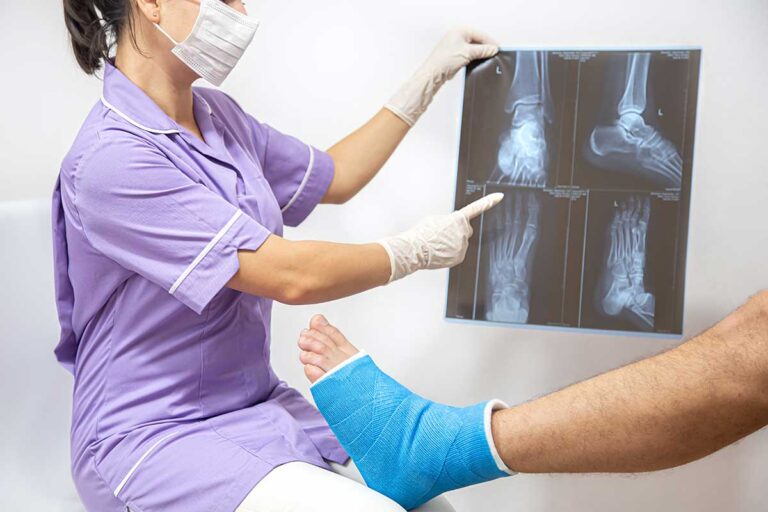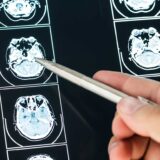Common Car Accident Injuries: Severity and Recovery Explained
In the ever-changing traffic environment of Georgia, both drivers and passengers face a variety of risks each time they fasten their seatbelts. The injuries commonly sustained in car accidents can have profound effects, often changing lives in an instant. Whether navigating the busy streets of Atlanta or enjoying the picturesque routes of Savannah, the repercussions of these incidents can vary significantly, from minor cuts and bruises to serious, life-altering injuries. This guide highlights typical car accident injuries encountered on Georgia’s roadways, providing an overview of both severe and minor outcomes experienced by individuals involved in vehicular accidents.
What types of injuries are classified as minor following a car accident?
Minor injuries resulting from a car accident typically encompass soft tissue damage, such as superficial lacerations, minor abrasions, contusions caused by impact, mild thermal injuries, and slight whiplash resulting from abrupt movements. Generally, these injuries do not necessitate extensive medical treatment and can be effectively addressed with prompt first aid and short-term care.
Injured In A Car Wreck? Contact Us For A Free Consultation
Injured In A Car Wreck?

What are the most serious injuries that can result from a car crash?
Severe injuries sustained in a car crash can lead to long-lasting or permanent disabilities for the affected individual and may require continuous medical attention. Such injuries may include traumatic brain injuries, damage to the spinal cord, extensive burns, amputation of limbs, organ failure, and internal hemorrhaging, which may remain undetected until it poses a significant threat to life.
Now, let us explore the most common car accident injuries in Georgia.
Whiplash and Other Neck Injuries
What is the most common injury resulting from a car wreck? One of the most frequently encountered injuries during a collision is whiplash, particularly in rear-end accidents.
Whiplash occurs when the head is abruptly thrust forward and then backward, causing strain to the neck muscles and ligaments. Common symptoms include:
- Pain and stiffness in the neck
- Headache at base of skull
- Feelings of dizziness
- Blurred vision
It is important to note that the discomfort associated with whiplash may not manifest immediately after the incident, often taking several days to appear. If left untreated, it can result in chronic neck pain and persistent complications. Other neck injuries, such as cervical dislocation or disc herniation, may also have enduring consequences, occasionally requiring surgical intervention or prolonged rehabilitation.
The rehabilitation process for neck injuries is crucial for effective recovery, typically encompassing pain management, physical therapy, and exercises aimed at strengthening the neck and enhancing flexibility. Nevertheless, the recovery journey can be lengthy, with some individuals facing ongoing pain and disability.
If you have sustained injuries in a car accident in the Atlanta area and require assistance from a car accident attorney, please contact The Jewkes Firm today at (770) 771-5130 for a complimentary consultation.
Brain Trauma
Traumatic brain injuries (TBIs) represent one of the most critical outcomes of automobile collisions, with effects that can range from minor concussions to profound neurological impairment. Such injuries typically occur when an individual’s head forcefully collides with an object or when the brain is violently shaken within the cranial cavity due to abrupt changes in speed.
Individuals affected by TBIs may face a variety of cognitive, physical, and emotional challenges, some of which may not manifest until long after the initial incident. Common symptoms include headaches, dizziness, confusion, memory deficits, and alterations in personality. In severe instances, TBIs can result in lasting disabilities that necessitate continuous care and assistance.
A team of specialists, including neurologists, physiatrists, occupational therapists, and neuropsychologists, is responsible for the comprehensive rehabilitation process for brain injuries. Recovery may involve relearning fundamental skills, adjusting to new limitations, and restoring one’s identity.

Back Injuries
The significant impact associated with car accidents often leads to a high incidence of back injuries, which can result in chronic pain and long-term disability. These injuries may vary in severity, encompassing conditions such as sprains, strains, herniated discs, and damage to the spinal cord.
Even impacts that appear minor can lead to persistent back problems that may not manifest symptoms right away.
Timely medical attention and precise diagnosis are critical for the effective management of back injuries. Treatment strategies may involve pain relief, physical rehabilitation, or, in more severe cases, surgical intervention. Individuals suffering from serious spinal injuries might require ongoing care and support throughout their lives.
The rehabilitation journey for back injuries is not only physically challenging but can also impose a significant financial strain due to healthcare costs and potential loss of income.
Support from family members, healthcare providers, and legal advisors can be invaluable during the recovery process, helping to secure the best possible outcomes and financial stability for the affected individual.
Concussions
Concussions resulting from automobile accidents occur when the brain experiences rapid deceleration, leading to its impact against the inner surface of the skull. This sudden movement can cause the brain to shift violently within its protective membrane, resulting in stretching, alterations in chemical composition, and possible harm to neural cells.
Often referred to as “mild” traumatic brain injuries, concussions can nonetheless have profound effects. Each incident carries the potential for significant, long-lasting consequences, as symptoms may not manifest immediately. In contrast to visible injuries such as lacerations or fractures, concussions remain concealed within the skull and may go undetected until further complications develop.
Following a car accident, the affected individual may exhibit a variety of symptoms indicative of disruptions in brain function. Consequently, it is essential to observe any changes in cognitive abilities, including attention, memory, learning, and problem-solving skills.

Burns
Burn injuries can range in severity, from first-degree burns that affect merely the outermost layer of skin to third-degree burns that can extend through the entire thickness of the skin, impacting deeper tissues.
Following an incident, individuals suffering from burns may endure an extended recovery process, which frequently entails:
- Skin graft procedures
- Reconstructive surgical interventions
- Comprehensive rehabilitation programs
The repercussions of burn injuries are profound, both physically and psychologically, with numerous survivors facing persistent pain, scarring, disfigurement, and emotional distress. The recovery journey often necessitates a collaborative approach involving a variety of specialists, including surgeons, dermatologists, physiotherapists, and mental health experts.
Beyond immediate medical attention, the recovery process typically encompasses long-term treatment strategies focused on physical rehabilitation, aesthetic restoration, and emotional support. Given the extensive care required and the potential for lasting effects, cases of burn injuries may warrant significant compensation to address medical expenses, lost income, and the suffering endured.
Internal Bleeding
Internal bleeding refers to the loss of blood that occurs within the body due to damage to blood vessels, resulting in a situation where the blood loss is not externally visible. This type of injury may not show signs immediately. Thus, emphasizing the need for prompt medical assessment.
Initial indicators of internal bleeding may include discomfort, swelling, deep purple bruises, lightheadedness, and episodes of fainting. If not diagnosed or treated promptly, internal bleeding can result in serious complications, including organ failure, shock, or potentially fatal outcomes.
Emergency medical care is frequently necessary to identify the source of the bleeding and to administer suitable treatment. Individuals experiencing internal bleeding as a result of a vehicular accident require careful observation and may need an extended hospital stay, followed by a prolonged recovery phase.
Paralyzing Injuries
Severe injuries resulting from automobile accidents can lead to paralysis in victims, either partially or completely, primarily due to damage to the spinal cord. The extent of paralysis can vary, encompassing conditions such as paraplegia and quadriplegia, or resulting in total body paralysis that requires ongoing assistance. These injuries interfere with the signals between the brain and body, potentially resulting in the loss of movement and sensation below the site of injury.
In addition, spinal cord injuries may lead to secondary health complications, such as respiratory issues, the formation of blood clots, and the development of pressure sores. Victims often undergo extensive rehabilitation to adjust to their new disabilities, which may involve necessary modifications to their homes, vehicles, and workplaces.
The emotional and financial impact of paralyzing injuries can be profound, affecting not only the individuals injured but also their families. It is essential for those experiencing such injuries to have access to comprehensive medical care, psychological support, and legal guidance to effectively manage the complex consequences of their altered circumstances.

GEORGIA PERSONAL INJURY LAWYER NEAR ME

Loss of Limbs
The severe consequences of limb loss resulting from critical injuries sustained in a car accident can profoundly affect an individual’s physical and emotional health. Amputations may occur at the time of the accident, or surgical intervention may be necessary due to the severity of the injuries sustained.
The loss of an arm, leg, hand, or foot greatly impedes daily activities, professional opportunities, and personal interests. Although prosthetic devices provide functional and aesthetic alternatives, the psychological impact of such a loss, including issues related to body image and personal identity, is significant.
Ongoing rehabilitation, psychological counseling, and participation in support groups are essential for amputees to cope with the emotional difficulties and physical adaptations required after the loss. Additionally, the financial strain associated with medical care, prosthetic fittings, and potential income loss can be substantial, highlighting the need for comprehensive care strategies and compensation for those affected.
Scarring and Disfigurement
The skin, recognized as the body’s largest organ, can sustain considerable damage that leads to prominent scarring and disfigurement, especially in instances of severe abrasions, deep cuts, or burns. Such injuries, frequently associated with automobile accidents, may necessitate numerous surgical interventions and prolonged skin grafting, which can be both painful and financially burdensome.
From a psychological perspective, changes in one’s appearance can result in issues related to self-esteem, social anxiety, and depression. While reconstructive surgery and various cosmetic treatments may enhance the appearance of scars, the emotional impact can be significantly more challenging to address.
Victims of car accidents who endure disfiguring injuries often require continuous psychological assistance to reconcile with their modified appearance and restore their self-confidence. Throughout the process of both physical and emotional recovery, support from family, friends, peer groups, and professional counseling proves to be essential.
Bruises
Bruises frequently occur as a result of car accidents, primarily due to the impact from seatbelts and airbags. The force generated during a collision, even with a seatbelt secured, can cause the body to shift and strike various components within the vehicle, resulting in significant and often painful discoloration.
Although bruises may appear to be minor injuries in comparison to others sustained in car accidents, they can signify more serious underlying issues, such as deep tissue damage or internal bleeding. In the case of high-impact collisions, what may initially seem like a simple bruise could actually indicate a more severe injury affecting internal organs.
It is advisable to seek medical evaluation for bruises following an accident, as they may be indicative of additional complications. Observing for increased pain, swelling, or alterations in color can assist in determining whether a more serious injury necessitates medical intervention.
Facial Injuries
Trauma to the face resulting from motor vehicle accidents frequently occurs due to the activation of airbags, broken glass, or abrupt impacts with the vehicle’s interior. These injuries can vary in severity, from minor cuts and bruises to more serious conditions, such as fractures of the jaw.
Typical injuries associated with facial damage include fractures of the nose, cheekbones, or eye sockets, which may lead to pain, swelling, and potential long-term aesthetic and functional complications. Additionally, dental injuries are prevalent, with risks of teeth being chipped, dislodged, or completely lost.

Bone Fractures
An automobile accident can cause bone fractures that vary significantly in severity. Complex fractures necessitate surgical procedures, and simple fractures can be treated with a cast. Commonly affected areas include the ribs, collarbone, arms, and legs. High-impact collisions are particularly likely to result in fractures of the pelvis and femur, which can lead to considerable impairment.
The symptoms associated with a fracture typically manifest as immediate pain, swelling, and a loss of mobility in the affected region. Visual indicators may include abnormal angles or, in the case of compound fractures, the visible protrusion of bone through the skin. It is essential to remain as motionless as possible if a fracture is suspected to prevent additional injury and to seek urgent medical care.
Factors such as the severity and location of the bone fracture, as well as an individual’s overall health, influence the recovery duration. While some fractures may heal within a few weeks, others may take several months or may require surgical intervention to properly align and stabilize the bone.
Post-Traumatic Stress Disorder
An automobile accident can result in profound psychological trauma, besides the usual physical injuries. Post-traumatic stress disorder (PTSD) is a mental health condition that may arise from experiencing or witnessing a distressing event.
Following a collision, individuals may exhibit symptoms of PTSD, which can encompass flashbacks, nightmares, intense anxiety, and intrusive thoughts related to the event. Although these symptoms are not physically visible, PTSD can significantly hinder a person’s daily functioning, impairing their capacity to work, engage with family and friends, or carry out routine activities.
PTSD can manifest immediately after the incident or may develop weeks or even months later, underscoring the importance of seeking psychological assistance for those affected. Continuous counseling and therapy are essential components of the recovery journey, aiding individuals in managing their trauma and restoring their quality of life.
If you are experiencing emotional distress after a car accident in the Atlanta area that was not your fault, car accident attorneys are available to assist you. Contact us today to learn about your options moving forward.
Need a Free Consultation? Need a Skilled Attorney?
Free Consultation
Call (770) 771-5130
If you’ve been injured, you need to hire the best legal care to assist you with your claim. Get a FREE consultation today!
Wrist and Hand Injuries
Wrist and hand injuries frequently occur in automobile accidents, as individuals often instinctively brace themselves for the collision. These injuries can range from sprains and fractures to dislocations and tendon injuries. The deployment of airbags may result in wrist fractures, while collisions with the vehicle’s interior can cause various hand injuries.
Following an accident, individuals may experience diminished grip strength, difficulties with fine motor skills, or persistent pain and swelling. Recovery strategies may include the use of splints, casts, surgical intervention, and physical therapy. Significant injuries to the hand and wrist can result in long-term functional impairments, which can greatly impact both professional responsibilities and daily activities.
Each patient should have a rehabilitation process tailored to meet their specific needs. Thus, ensuring they receive appropriate therapy and support for optimal recovery. Furthermore, investigating legal avenues may assist in alleviating the financial strain of medical expenses and potential loss of income, thereby providing essential assistance during the recovery journey.
Leg and Foot Injuries
Leg and foot injuries resulting from automobile accidents can be profoundly incapacitating, significantly hindering mobility and the individual’s capacity to perform everyday activities. These injuries may present themselves in multiple ways, including:
- Fractures
- Ligament tears
- Crush injuries
- Traumatic amputation
Injuries to the lower limbs necessitate comprehensive rehabilitation, which may involve surgical interventions, physical therapy, and, in certain instances, relearning to walk with the assistance of mobility aids. Patients often face challenging recovery processes, which demand not only physical healing but also adaptation to a potentially altered way of life.
Moreover, the financial burdens associated with prolonged care, necessary adjustments to living environments, and potential loss of income can further complicate the recovery experience.
Pain and Suffering
In addition to the physical injuries sustained in car accidents, victims frequently contend with chronic pain that infiltrates every aspect of their lives. The suffering resulting from these injuries extends beyond the initial trauma, often becoming a persistent burden that adversely affects quality of life and complicates the recovery process.
Consequently, effective pain management is essential to the healing journey, requiring a comprehensive approach to alleviate discomfort and enhance emotional resilience. Furthermore, the psychological turmoil that can arise after an accident may present itself in various ways, including anxiety, post-traumatic stress disorder (PTSD), and depression.
The constant presence of distress significantly influences the victim’s mental well-being, often necessitating professional psychological support. Resources such as support networks, counseling, and, in some cases, medication are crucial in restoring mental health and aiding a victim’s return to normalcy.
Are you aware that you can pursue compensation for emotional pain and suffering resulting from a car accident in Atlanta? Contact The Jewkes Firm, LLC, today for a complimentary consultation.

GEORGIA PERSONAL INJURY LAWYER NEAR ME
Have You Experienced An Injury From A Car Accident In Georgia?
If you have experienced a car accident in Georgia and are struggling with the consequences of your injuries, you need not endure this challenging time alone. Reach out to Jordan Jewkes, a personal injury attorney based in the South Atlanta area. Jordan and his team will assist you in legal proceedings and help you obtain the compensation you are entitled to.
It is important to be aware that the statute of limitations for car accident claims in Georgia is only two years from the date of the incident. This indicates that you have a limited timeframe to file a personal injury claim and pursue justice for your injuries. Therefore, it is crucial to act promptly and reach out to an attorney as soon as possible.
Reach out to The Jewkes Law Firm today at (770) 771-5130 for a free consultation with a knowledgeable Atlanta car accident lawyer, and allow us to advocate for your rights and strive for the justice you deserve.





